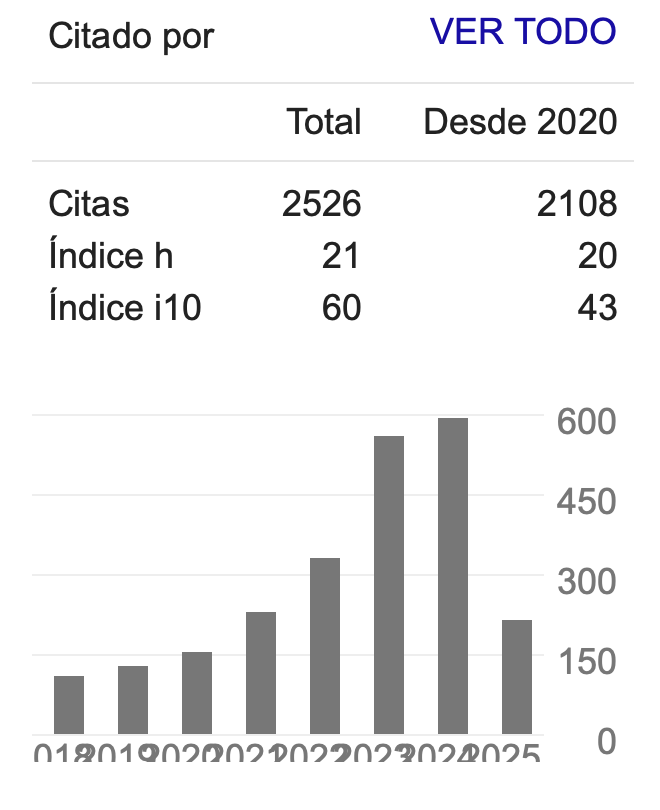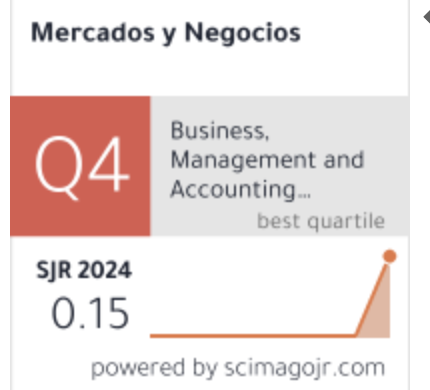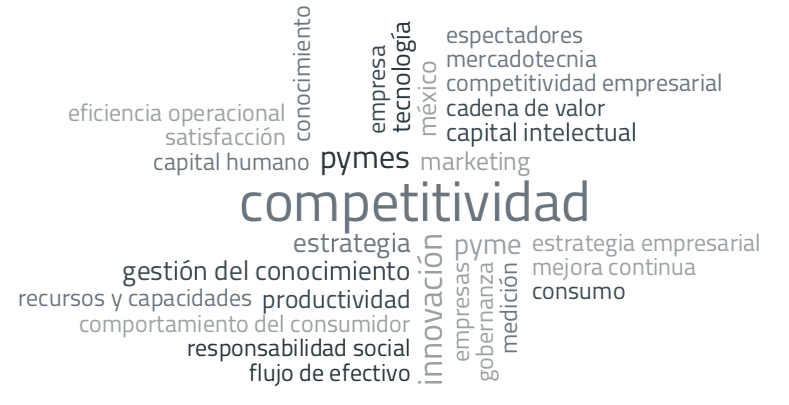Tecnologías de la información e influencia en la aplicación de los principios de innovación
DOI:
https://doi.org/10.32870/myn.v0i37.7120Keywords:
Aplicación de TICS, tipos de innovación, desarrollo de la innovación.Abstract
El objetivo del artículo es analizar la influencia de las tecnologías de la información en la aplicación de los principios de la innovación. Se aplicó una encuesta a 149 empresarios en Aguascalientes. Después de un análisis de correlación y una regresión lineal, el estudio reveló que existe una relación fuerte entre la utilización de TICS, y la disposición que tiene la empresa a innovar; por lo que al incrementar la utilización de tecnologías de información, también se incrementa la aplicación de innovación en las organizaciones.References
Ahearne, M., Adam, R., Douglas, E. y Rupinder, J. (2010). Managing sales force product perceptions and control systems in the success of new products introduction. Journal of Marketing Research. 47 (August), 764 – 776.
Ahearne, M., Till, H., Florian, K. y Jan, W. (2013). It’s the matter of congruence: How interpersonal identification between sales managers and salespersons shapes sales success. Journal of the Academy of Marketing Science. 41 (6), 625 – 648.
Blundell, R., Griffits, R. y Van Reenen, J. (1999). Market share, market value and innovation in a panel of British Manufacturing firms. Review of Economic Studies. 66 (3), 529 – 554.
Campeau, D. y Higgins, C. (1985). Application of social cognitive theory to training for computer skills. Systems Research. 6 (2), 118 – 143.
Cardentey, A. y Quintana, M. (2008). Propuesta de metodología para elaborar la estrategia de gestión de la innovación tecnológica en las empresas cubanas. ACIMED, 18(6), 1 -16.
Comisión Europea, (1995). Libro verde de la innovación, diciembre.
De Massis, A., De Minin. A. y Frettini. F. (2015). Family-Driven Innovation; Resolving the paradox in family firms. California Management Review. 58 (1), 5 – 19.
Denning, P. (2016). The profession of IT. How to produce innovations. Communications of the ACM. 59 (6), 28 – 30.
Frishammar, J. y Ake-Hörte, S. (2007). The role of market orientation and entrepreneurial orientation for new product development performance in manufacturing firms. Technology Analysis and Strategic Management. 16 (6), 765 – 788.
Fu, F. Q., Ketih, A. R., Douglas, E. H. y Eli, J. (2010). Motivating sales people to sell new products: The relative influence of attitudes, subjective norms, and self-efficacy. Journal of Marketing. 74 (November), 61 -76.
Gunasekaran, A. y Ngai, E.W.T. (2004). Information systems in supply chain performance measurement. European Journal of Operational Research. 159, 269 – 295.
Hohenberg, S. y Homburg, C. (2016). Motivating sales reps for innovation selling in different cultures. American Marketing Association. 80 (March), 101 – 120.
Hultink, E. y Atuahene-Gima, K. (2000). The effect of sales force adoption on new product selling performance. Journal of Product Innovation Management. 17 (6), 435 – 450.
ITU. (2015). ICT Facts and figures. Recuperado de: International Telecommunication Union website:
htpp//www.itu.int/en/ITU-D/Statistics/Documents/facts/ICTFactsFigires2015.pdf
Impagliazzo, J. (2005). Use a little history. ITICSE. (june), 379.
Janevski, Z. (2013). The role of innovation and information and communication technology (ICT) in development of entrepreneurship in the Republic of Macedonia. Economics Development. 3, 73 – 87.
Kuhl, M., da Cunha, J., Maçaneiro, M. y da Cunha, S. (2016). Collaboration for innovation and susteinale performance: Evidence of relationship in electro-electronic industry. Vitória- ES. 123 (3), 1 – 25.
Maldonado, G., Martínez, S., Hernández, C., García, P. (2011). El impacto de los procesos de producción en el rendimiento de la Pyme manufacturera de México: Un estudio empírico, TEC Empresarial, Escuela de Administración de Empresas, 5(1), 21 – 30.
Maldonado, G., Sánchez, J., Gaytán, J., Ramírez, G. (2012). Measuring the competitiveness level in furniture SMEs of Spain. International Journal of Economics and Management Sciences, 1(11), 09-19.
Mojica, C. (2012). La influencia d la orientación a mercado y la innovación en la capacidad de internacionalización y desempeño de las PYMES en el estado de Aguascalientes. (Tesis inédita de doctorado). Universidad Autónoma de Aguascalientes. Aguascalientes, México.
Moutada, R. y Salem, F. (2010). The role of ICT in cultivating innovation: The case of the UAE. ICEGOV (October), 375 – 376.
Noori, H. y Radford, R. (1997). Administración de Operaciones y Producción, Colombia: Mc. Graw Hill.
Nunnally, J. y Bernstein, I. (1994). Psychometric Theory. Nueva York, NY: McGraw Hill.
Obi, T. e Iwasaki, N. (2013). Innovative applications and strategy on ICT applications for aging society: Case study of Japan Silver ICT Innovations. ICEGOV (October), 218 – 226.
Office of Technology Assessment. (1982). Study on information technology automation and the workplace. ACM SIGCAS Computers and Society. 12 (1), 35 – 40.
Osorio-Gallego. C., Londoño-Metaute, J. y López-Zapata, E. (2016). Analysis of factors that influence the ICT adoption by SMEs in Colombia. Omnia Science. 12 (2), 666 – 732.
Potgieter, B. (2004). Change and innovation we expect of ICT teaching staff. Australian Computer Society. 30, 247 – 253.
Schmookler, J. (1966). Invention and Economic Growth. Cambridge, Mass: Harvard University Press.
Sylleros, A. (2012). Joseph Schumpeter, profeta de la innovación miércoles 5 de septiembre, disponible en http://mujerinnovacion.bligoo.com/content/view/493894/Joseph-Schumpeter-Profeta-de-la-Innovacion.html
Van, A., Madrid, G. y García, P. (2008). Innovation and performance in spanish manufacturing SME’s. International Journal of Entrepreneurship and Innovation Management, 8(1), 36 – 56.
Woody, K., Koeller, B. y Koemans, D. (2005). Advanced technologies studios. SIGUCCS (November), 453 -455.
Xavier, S., Kelley, D., Kew, M., Harrington, N. y Vorderwülbnecke, A. (2013). Global Entrepreneurship Monitor: 2012 Global Report, GEM Consortia.
Xin, J., Yeung, A. y Cheng, C. (2008). Radical innovation in new product development and their financial performance implications: An event study of US manufacturing firms. Operation Management research, 1, 119 – 128.
Zhang, P., Aikman, S. N., & Sun, H. (2008). Two types of attitudes in ICT acceptance and use. Intl. Journal of Human–Computer Interaction, 24(7), 628-648.
Published
How to Cite
Issue
Section
License
Mercados y Negocios by Department of Mercadotecnia y Negocios Internacionales. University of Guadalajara is licensed under a License Creative Commons Attribution-NonCommercial 4.0 International.
The author retains the copyright.








